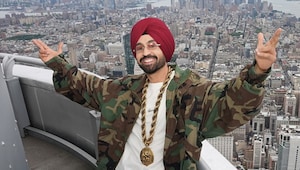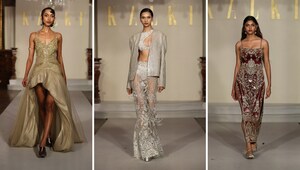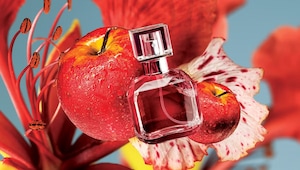
Social media roots for freedom and self-experession, but is it really a free space?
Friendly reminder: proceed with caution.

Isn’t social media a bit like a toxic relationship you can’t get enough of? You crave validation, you pursue the chase, you do everything you can to look good, you immerse yourself into it...and yet you’re never fully satisfied. It can be liberating and stifling, indulgent and intoxicating—everything all at once. But more often than not, you are left
wondering if it’s actually good for you, or if you could simply find better things to do.
Is social media a free space where anything goes, where one can say whatever their heart desires? For the purpose of this piece, assume when I say social media I mean Instagram—a platform I am familiar with and create ‘non-controversial’ fashion content on. My own journey with social media has had its own trials and tribulations.
I certainly felt freer back in 2011 as a user when the epitome of ‘aesthetic’ was overexposed photographs with Polaroid frames. Now, as a creator in 2024, I am hyper-aware of being surveilled—both by the app and by my audience.
Simply and legally put, Instagram is not a free space and there are codes of conduct that are in place. One can’t just say anything on it. Within the app, the algorithm censors certain words or phrases that can, at times, benefit the community at large; and, at other times, completely demolish the tagline of a great joke. While censorship by the app may not be outwardly obvious, try tagging a friend you are mad at with the caption—“I want to k*LL you”—at your own risk.

For me, what is even scarier than in-app censorship is audience judgment. Let’s face it, we all like to judge, and we’ve all done it. While we laze in our PJs, we look forward to reading nasty comments on the MET Gala looks. We also try to calculate how much a certain someone spent before walking the red carpet at Cannes. Like in society, there is a price one pays for being totally free on social media.
While I greatly enjoy voicing my thoughts online, I would be lying if I said I don’t second-guess myself often. I wonder why I find it so much easier to post a photograph of my outfit as opposed to my opinion. I can somehow stomach someone saying the outfit doesn’t suit me, but I can’t handle my opinion being challenged. Or worse, taken out of context.
Recently, I had ‘verbal diarrhoea’ on a podcast where I said exes cannot be friends. In a somewhat confusing manner, I expressed that they are either not in your life at all or remain close but turn so platonic that you start thinking of them as cousins.
This statement, as you can imagine, generated great traction in terms of views and comments—something that most creators would enjoy. While audience reactions on the statement were mixed, my reaction remained constant—I was anxious. With the privilege that comes with using a space where one can express freely and unabashedly, I suppose one also has to be okay with the reactions that you get.
Self-expression is great and must be celebrated, but I would advise proceeding with caution. My method of self-censorship is rather direct and foolproof. To personally gauge if it is okay to post something on social media, I think of myself on a rooftop (rather like a poor man’s SRK) with a bunch of semi-like-minded individuals lined up on the road below (aka my audience). I then proceed to ask myself “Would it be okay to yell whatever it is I am posting from up here to a group of unassuming individuals?” If the answer is yes, I will post it. I would also strongly suggest trolls, who harass people from behind the screens, to apply this method.
When in doubt, yell it out.
Similar to art, social media mimics the real world in some ways, and the real world mimics social media in others. Does free speech really exist in the world? I personally believe there are things that are okay to say to your best friends; things that can be said at large gatherings; and things that should only be reserved for when you pay someone to hear them.
Tarini Manchanda is a social media influencer and the founder and creative director of The Initial Studio.
This article originally appeared in Cosmopolitan India, May-June 2024 print issue.
Image credit: Shutterstock
Also read: Should you have your boss on social media?
more from Life

The P-Pop takeover—how Punjabi music has turned into a global phenomenon

Who is Tejasvi Manoj? Meet the 17-year-old reshaping the future of tech

Here’s how Gen Z really feels about the 10-hour workday policy

Boring feeds are taking over Instagram and it’s actually kind of liberating

The new ‘Wuthering Heights’ trailer is steamy, chaotic, and totally dividing the internet

Will he? Won’t he? Is that big diamond engagement ring just a ‘humiliation ring’?

Did Gen Z just kill the party scene for good?

Kalki’s first standalone show was a masterclass in modern couture

Earth, fire, water, or air—which Addams family member does your Zodiac element vibe with?

Apple perfumes will hit peak ripeness this fall—here’s what you need to know about the trend
